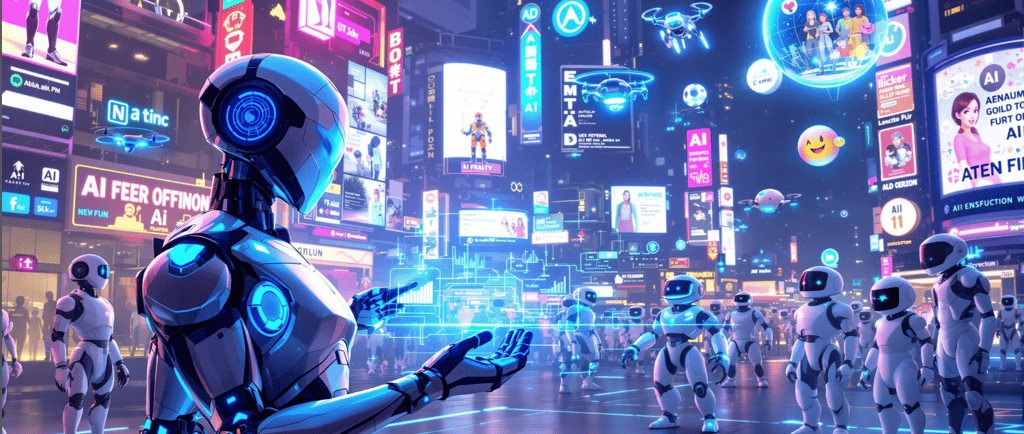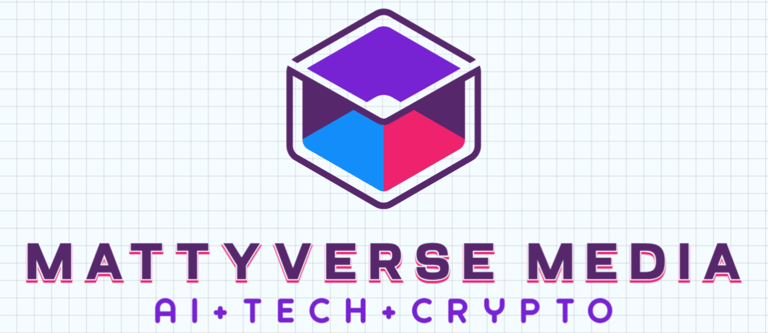The Rise of AI Agents: Shaping Our Future
AI is everywhere. It powers your phone, recommends shows, and even helps doctors. But AI agents are different. These systems don’t just follow instructions—they act on their own to solve problems. They can sense, think, and act without constant human input. AI agents are already changing how we live and work. Let’s explore what they are, how they work, and why they matter.
Mattyverse
2/23/20253 min read


The Rise of AI Agents: Shaping Our Future
AI is everywhere. It powers your phone, recommends shows, and even helps doctors. But AI agents are different. These systems don’t just follow instructions—they act on their own to solve problems. They can sense, think, and act without constant human input. AI agents are already changing how we live and work. Let’s explore what they are, how they work, and why they matter.
What Are AI Agents?
An AI agent is like a smart assistant, but much more advanced. It doesn’t just follow commands—it makes decisions. These systems can analyze situations, learn from their environment, and take action to achieve goals. For example, a chatbot that answers your questions is an AI agent. So is a self-driving car that navigates traffic. Unlike regular software, AI agents adapt to new information and improve over time. They don’t need constant human guidance, which makes them incredibly useful for complex tasks.
Types of AI Agents
AI agents come in three main types:
Reactive agents: They respond to situations but don’t learn. Think of a chess bot that reacts to moves.
Goal-based agents: They plan actions to meet specific goals, like a robot that cleans a room.
Learning agents: They improve over time by learning from data. These are the most advanced.
Some systems combine these traits to handle more complex tasks. For example, a self-driving car might use reactive skills to avoid accidents, goal-based planning to reach a destination, and learning to improve its driving over time.
AI Agents in Daily Life
AI agents are already part of your everyday life. They recommend movies, manage your emails, and even help doctors diagnose diseases. In factories, they optimize production. In logistics, they plan delivery routes. These systems save time, reduce errors, and make decisions faster than humans. For example, when you shop online, AI agents suggest products, track inventory, and plan shipping. In healthcare, they analyze medical images and predict patient risks. They’re not just tools—they’re problem solvers.
The Challenges
AI agents aren’t perfect. They can inherit biases from the data they’re trained on. This can lead to unfair decisions. For example, an AI hiring tool might favor certain groups over others. Privacy is another concern. AI agents often need access to personal data, which raises questions about security. They also raise ethical issues. Should an AI agent decide who gets a loan or medical treatment? These systems are powerful, but they need to be used responsibly.
Team Players
Some systems use multiple AI agents working together. This is called a multi-agent system. For example, in a factory, one agent might track supplies while another plans production. In a hospital, one agent might schedule surgeries while another monitors patient data. These teams of agents can solve problems too big for a single system. By working together, they can handle tasks that require coordination and communication.
Beyond Work
AI agents aren’t just for serious tasks. They’re also helping in creative fields. They write music, design art, and even create video game characters. Imagine a game where the characters learn and adapt to your playstyle. Or an AI that helps you write a book by suggesting ideas. These systems are opening up new possibilities for creativity and entertainment. They’re not replacing human creativity—they’re enhancing it.
Jobs and Skills
As AI agents get smarter, they could replace some jobs. For example, they might take over tasks like data entry or customer service. But they could also create new jobs, like designing and managing AI systems. The challenge is making sure people have the skills to work with these systems. Schools and training programs need to prepare workers for this shift. It’s not just about replacing jobs—it’s about creating opportunities.
Solving Big Problems
AI agents are tackling major challenges. They’re fighting climate change by making energy use smarter. In medicine, they’re helping doctors find diseases sooner. In agriculture, they’re improving crop yields and reducing waste. But as these systems become more powerful, we need clear rules to keep them safe and fair. Transparency and accountability are key. We need to make sure these systems work for everyone, not just a few.
Looking Ahead
AI agents are more than just tools—they’re partners in solving problems. They can save time, improve lives, and tackle challenges we can’t handle alone. But they also come with risks. We need to use them wisely and make sure they’re fair and transparent. The future of AI agents is exciting, but it’s up to us to guide it in the right direction.
What do you think about AI agents? Are they the future, or do they raise too many concerns?
Share your thoughts on the X post below.
